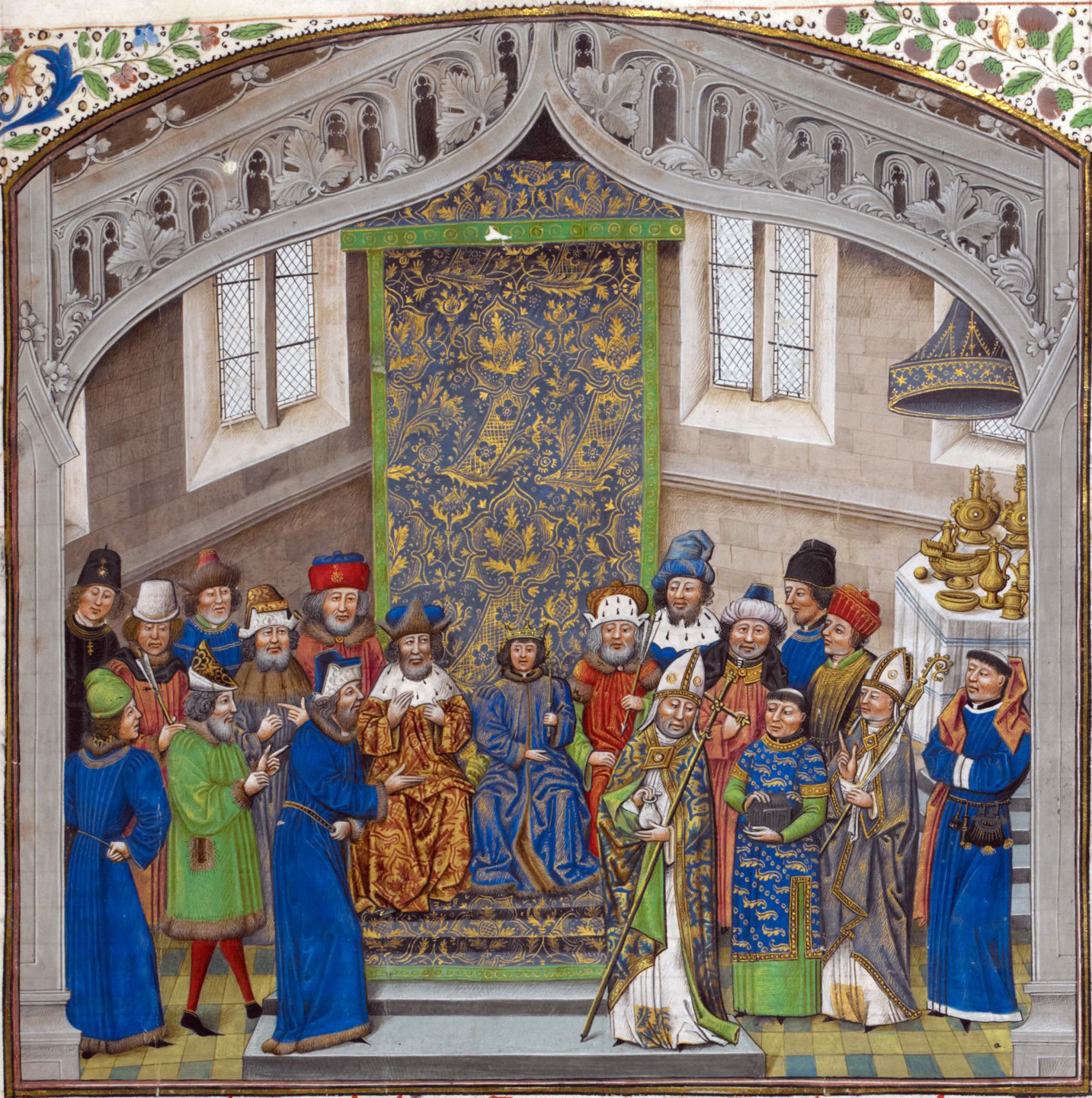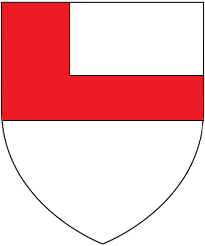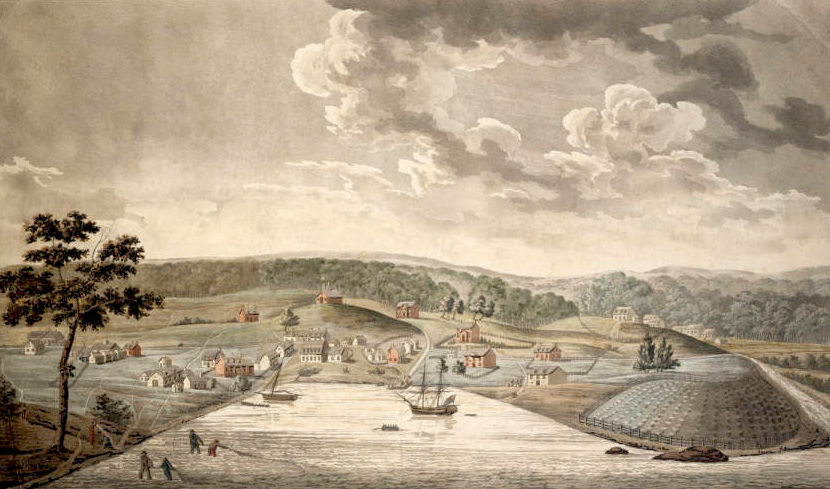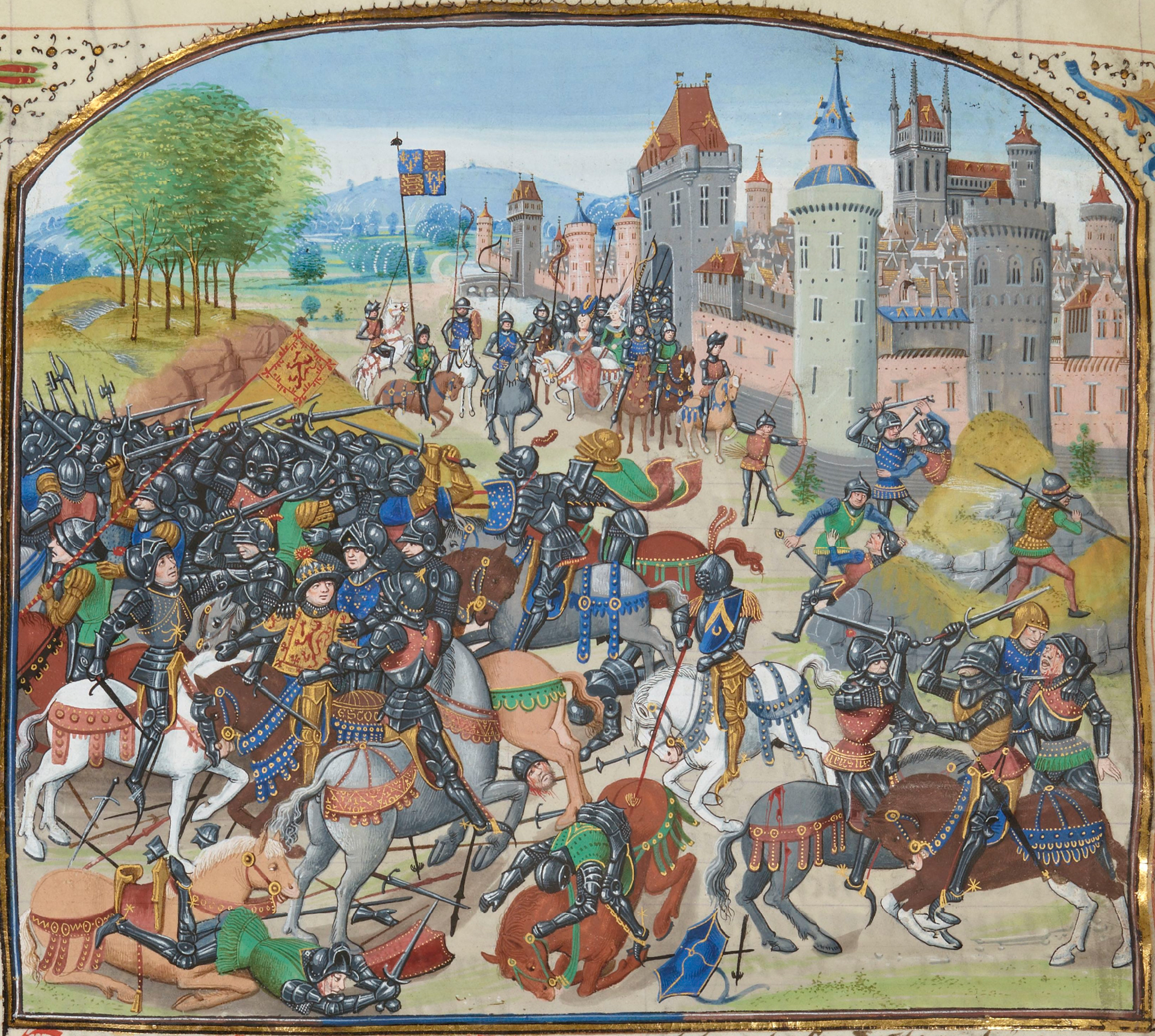|
Jehan De Waurin
Jean de Waurin or Wavrin (c. 1400c. 1474) was a medieval French chronicler and compiler, also a soldier and politician. He belonged to a noble family of Artois, and witnessed the Battle of Agincourt from the French side, but later fought on the Anglo-Burgundian side in the later stages of the Hundred Years' War. As a historian, he put together the first chronicle intended as a complete history of England, very extensive but largely undigested and uncritical."Jean de Wavrin"in ''Medieval France; in Encyclopedia'' Written in French, in its second version it extends from 688 to 1471, though the added later period covering the Wars of the Roses shows a strong bias towards Burgundy's Yorkist allies. Strictly his subject is Great Britain, but essentially only England is covered, with a good deal on French and Burgundian events as well. Life He was the illegitimate son of Robert de Wavrin, Lord of Wavrin, from a town in France near the present Belgian border, and Michielle de Croix. H ... [...More Info...] [...Related Items...] OR: [Wikipedia] [Google] [Baidu] |
Coronation Richard2 England 01
A coronation ceremony marks the formal investiture of a monarch with regal power using a crown. In addition to the crowning, this ceremony may include the presentation of other items of regalia, and other rituals such as the taking of special vows by the new monarch, the investing and presentation of regalia to them, and acts of homage by the new monarch's subjects. In certain Christian denominations, such as Lutheranism and Anglicanism, coronation is a Rite (Christianity), religious rite. As such, Western-style coronations have often included anointing the monarch with holy anointing oil, holy oil, or chrism as it is often called; the anointing ritual's religious significance follows examples found in the Bible. The monarch's consort may also be crowned, either simultaneously with the monarch or as a separate event. Once a vital ritual among the world's monarchies, coronations have changed over time for a variety of socio-political and religious reasons; most modern monarchies ... [...More Info...] [...Related Items...] OR: [Wikipedia] [Google] [Baidu] |
Anthony Woodville, 2nd Earl Rivers
Anthony Woodville, 2nd Earl Rivers (c. 144025 June 1483), was an English nobleman, courtier, bibliophile and writer. He was the brother of Queen Elizabeth Woodville who married King Edward IV. He was one of the leading members of the Woodville family, which came to prominence during the reign of King Edward IV. After Edward's death, he was arrested and then executed by the Duke of Gloucester (the future King Richard III) as part of a power struggle between Richard and the Woodvilles. His English translation of '' The Dictes and Sayings of the Philosophers'' is one of the first books printed in England. This presents a detailed biography. Origins He was the eldest son to survive childhood of Richard Woodville, 1st Earl Rivers, by his wife Jacquetta of Luxembourg. His sister was Elizabeth Woodville, who married King Edward IV and became queen. Career Like his father, he was originally a Lancastrian, fighting on that side at the Battle of Towton, but later became a Yorki ... [...More Info...] [...Related Items...] OR: [Wikipedia] [Google] [Baidu] |
Royal Manuscripts, British Library
The Royal manuscripts are one of the "closed collections" of the British Library (i.e. historic collections to which new material is no longer added), consisting of some 2,000 manuscripts collected by the sovereigns of England in the "Old Royal Library" and given to the British Museum by George II in 1757. They are still catalogued with call numbers using the prefix "Royal" in the style "Royal MS 2. B. V". As a collection, the Royal manuscripts date back to Edward IV, though many earlier manuscripts were added to the collection before it was donated. Though the collection was therefore formed entirely after the invention of printing, luxury illuminated manuscripts continued to be commissioned by royalty in England as elsewhere until well into the 16th century. The collection was expanded under Henry VIII by confiscations in the Dissolution of the Monasteries and after the falls of Henry's ministers Cardinal Wolsey and Thomas Cromwell. Many older manuscripts were presented to ... [...More Info...] [...Related Items...] OR: [Wikipedia] [Google] [Baidu] |
Edward IV Of England
Edward IV (28 April 1442 – 9 April 1483) was King of England from 4 March 1461 to 3 October 1470, then again from 11 April 1471 until his death in 1483. He was a central figure in the Wars of the Roses, a series of civil wars in England fought between the Yorkist and Lancastrian factions between 1455 and 1487. Edward inherited the Yorkist claim to the throne at the age of eighteen when his father, Richard, Duke of York, was killed at the Battle of Wakefield in December 1460. After defeating Lancastrian armies at Mortimer's Cross and Towton in early 1461, he deposed King Henry VI and took the throne. His marriage to Elizabeth Woodville in 1464 led to conflict with his chief advisor, Richard Neville, Earl of Warwick, known as the "Kingmaker". In 1470, a revolt led by Warwick and Edward's brother George, Duke of Clarence, briefly re-installed Henry VI. Edward fled to Flanders, where he gathered support and invaded England in March 1471; after victories at the ba ... [...More Info...] [...Related Items...] OR: [Wikipedia] [Google] [Baidu] |
Baltimore
Baltimore is the most populous city in the U.S. state of Maryland. With a population of 585,708 at the 2020 census and estimated at 568,271 in 2024, it is the 30th-most populous U.S. city. The Baltimore metropolitan area is the 20th-largest metropolitan area in the country at 2.84 million residents. The city is also part of the Washington–Baltimore combined statistical area, which had a population of 9.97 million in 2020. Baltimore was designated as an independent city by the Constitution of Maryland in 1851. Though not located under the jurisdiction of any county in the state, it forms part of the central Maryland region together with the surrounding county that shares its name. The land that is present-day Baltimore was used as hunting ground by Paleo-Indians. In the early 1600s, the Susquehannock began to hunt there. People from the Province of Maryland established the Port of Baltimore in 1706 to support the tobacco trade with Europe and established the Town ... [...More Info...] [...Related Items...] OR: [Wikipedia] [Google] [Baidu] |
The Hague
The Hague ( ) is the capital city of the South Holland province of the Netherlands. With a population of over half a million, it is the third-largest city in the Netherlands. Situated on the west coast facing the North Sea, The Hague is the country's administrative centre and its seat of government, and has been described as the country's ''de facto'' capital since the time of the Dutch Republic, while Amsterdam is the official capital of the Netherlands. The Hague is the core municipality of the COROP, Greater The Hague urban area containing over 800,000 residents, and is also part of the Rotterdam–The Hague metropolitan area, which, with a population of approximately 2.6 million, is the largest metropolitan area of the Netherlands. The city is also part of the Randstad region, one of the largest conurbations in Europe. The Hague is the seat of the Cabinet of the Netherlands, Cabinet, the States General of the Netherlands, States General, the Supreme Court of the Neth ... [...More Info...] [...Related Items...] OR: [Wikipedia] [Google] [Baidu] |
House Of Nassau
The House of Nassau is the name of a European aristocratic dynasty. The name originated with a lordship associated with Nassau Castle, which is located in what is now Nassau, Rhineland-Palatinate, Nassau in Rhineland-Palatinate, Germany. With the fall of the Hohenstaufen dynasty in the first half of the 13th century, royal power within Franconia evaporated and the former stem duchy fragmented into separate independent states. Nassau emerged as one of those independent states as part of the Holy Roman Empire. The lords of Nassau were originally titled "Counts of Nassau", subject only to the Holy Roman Emperor, Emperor, and then elevated to princely rank as "Princely Counts". Early on, the family divided into two main branches – the elder (Walramian) branch, which gave rise to the German king Adolf, King of the Romans, Adolf, and the younger (Ottonian) branch, which gave rise to the Prince of Orange, Princes of Orange and the King of the Netherlands, monarchs of the Netherlands. ... [...More Info...] [...Related Items...] OR: [Wikipedia] [Google] [Baidu] |
Louis De Gruuthuse
Louis de Bruges, Lord of Gruuthuse, Prince of Steenhuijs, Earl of Winchester ( Dutch: Lodewijk van Brugge; – 24 November 1492), was a Flemish courtier, bibliophile, soldier and nobleman. He was awarded the title of Earl of Winchester by King Edward IV of England in 1472, and was Stadtholder of Holland and Zeeland 1462–77. Early life Born in 1427 as the legitimate son of Lord Jean IV of Bruges of the Gruuthuse family, and Margriet of Steenhuyse, Lady of Avelghem, young Loys (Louis or Ludovicus) was trained in the arts of war and the court in the wealth and luxury of Flanders' Golden Age. Louis de Gruuthuse took part in the Tournament of the White Bear in 1443, 1444, 1447, 1448 and 1450, where he often won one of the prizes. This caught the eye of the Duke of Burgundy and Count of Flanders, Philip the Good (1396–1467), who made Louis his squire and official wine server, an honorary title bestowed on only a few selected men. As a courtier Louis followed the Duke around ... [...More Info...] [...Related Items...] OR: [Wikipedia] [Google] [Baidu] |
Henry IV Of England
Henry IV ( – 20 March 1413), also known as Henry Bolingbroke, was King of England from 1399 to 1413. Henry was the son of John of Gaunt, Duke of Lancaster (a son of King Edward III), and Blanche of Lancaster. Henry was involved in the 1388 revolt of Lords Appellant against Richard II, his first cousin, but he was not punished. However, he was exiled from court in 1398. After Henry's father died in 1399, Richard blocked Henry's inheritance of his father's lands. That year, Henry rallied a group of supporters, overthrew and imprisoned Richard II, and usurped the throne; these actions later contributed to dynastic disputes in the Wars of the Roses (1455–1487). Henry was the first English ruler whose mother tongue was English (rather than French) since the Norman Conquest, over 300 years earlier. As king, he faced a number of rebellions, most seriously those of Owain Glyndŵr, the last Welshman to claim the title of Prince of Wales, and the English knight Henry Percy (Hotspur) ... [...More Info...] [...Related Items...] OR: [Wikipedia] [Google] [Baidu] |
Elizabeth Woodville
Elizabeth Woodville (also spelt Wydville, Wydeville, or Widvile; c. 1437Karen Lindsey, ''Divorced, Beheaded, Survived'', p. xviii, Perseus Books, 1995. – 8 June 1492), known as Dame Elizabeth Grey during her first marriage, was Queen of England from 1 May 1464 until 3 October 1470 and from 11 April 1471 until 9 April 1483 as the wife of King Edward IV. She was a key figure in the Wars of the Roses, a dynastic civil war between the Lancastrian and the Yorkist factions between 1455 and 1487. At the time of her birth, Elizabeth's family was of middle rank in the English social hierarchy. Her mother, Jacquetta of Luxembourg, had previously been an aunt-by-marriage to King Henry VI, and was the daughter of Peter I, Count of Saint-Pol. Elizabeth's first marriage was to a minor supporter of the House of Lancaster, John Grey of Groby. He died at the Second Battle of St Albans in 1461, leaving Elizabeth a widowed mother of two young sons. Elizabeth's second marriage, in 1464, to ... [...More Info...] [...Related Items...] OR: [Wikipedia] [Google] [Baidu] |
Edward IV
Edward IV (28 April 1442 – 9 April 1483) was King of England from 4 March 1461 to 3 October 1470, then again from 11 April 1471 until his death in 1483. He was a central figure in the Wars of the Roses, a series of civil wars in England fought between the Yorkist and House of Lancaster, Lancastrian factions between 1455 and 1487. Edward inherited the Act of Accord, Yorkist claim to the throne at the age of eighteen when his father, Richard, Duke of York, was killed at the Battle of Wakefield in December 1460. After defeating Lancastrian armies at Mortimer's Cross and Battle of Towton, Towton in early 1461, he deposed King Henry VI and took the throne. His marriage to Elizabeth Woodville in 1464 led to conflict with his chief advisor, Richard Neville, Earl of Warwick, known as the "Kingmaker". In 1470, a revolt led by Warwick and Edward's brother George, Duke of Clarence, briefly Readeption of Henry VI, re-installed Henry VI. Edward fled to Flanders, where he gathered sup ... [...More Info...] [...Related Items...] OR: [Wikipedia] [Google] [Baidu] |










